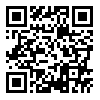year 10, Issue 10 (Spring 2022 2022)
Rooyesh 2022, 10(10): 261-274 |
Back to browse issues page
1- Ph.D Student. Department Of Psychology, Faculty Of Education and Psychology, Arak Branch, Islamic Azad University, Arak, Iran.
2- Assistant Professor, Department Of Psychology, Faculty Of Education And Psychology, Arak Branch, Islamic Azad University, Arak, Iran. , z-pirani@iau-arak.ac.ir
3- Associate Professor, Department Of Psychology, Faculty Of Education And Psychology, Arak Branch, Islamic Azad University, Arak, Iran.
2- Assistant Professor, Department Of Psychology, Faculty Of Education And Psychology, Arak Branch, Islamic Azad University, Arak, Iran. , z-pirani@iau-arak.ac.ir
3- Associate Professor, Department Of Psychology, Faculty Of Education And Psychology, Arak Branch, Islamic Azad University, Arak, Iran.
Abstract: (993 Views)
The aim of the present study was to evaluate the mediating role of difficulty in emotion regulation in the relationship between coping strategies and high-risk behaviors. The method of research was correlational. The study population consisted of all second-grade high school students who were studying in public schools in Tehran in the academic year of 2020-2021. Among them, 250 people were selected as a sample by multi-stage cluster sampling. The instruments of this study included the High-Risk Behavior Questionnaire (Ahmadpour Turkman, 2011), Coping Strategies Questionnaire (WCQ) (Lazarus and Folkman, 1984), and the Difficulty in Emotion Regulation Scale (Gertz and Romer, 2004). Findings obtained from assessing the proposed model by structural equation method using SPSS25 and Smart PLS3 software showed that coping strategies directly and negatively predict high-risk behaviors (P<0.01) and positively predict difficulty in cognitive regulation of emotion in adolescents (P<0.05). However, the direct role of difficulty in regulating emotion and its mediating role in the relationship between coping strategies and high-risk behaviors is not significant. Given the significant role of coping strategies on the difficulty in cognitive regulation of emotion and high-risk behaviors, teachers and counselors can improve emotion regulation and reduce adolescents' high-risk behaviors by examining the coping strategies.
Type of Article: Research |
Subject:
General Psychology
Received: 2021/06/21 | Revised: 2022/03/3 | Accepted: 2021/07/11 | ePublished: 2022/01/30
Received: 2021/06/21 | Revised: 2022/03/3 | Accepted: 2021/07/11 | ePublished: 2022/01/30
| Rights and permissions | |
 |
This work is licensed under a Creative Commons Attribution-NonCommercial 4.0 International License. |



